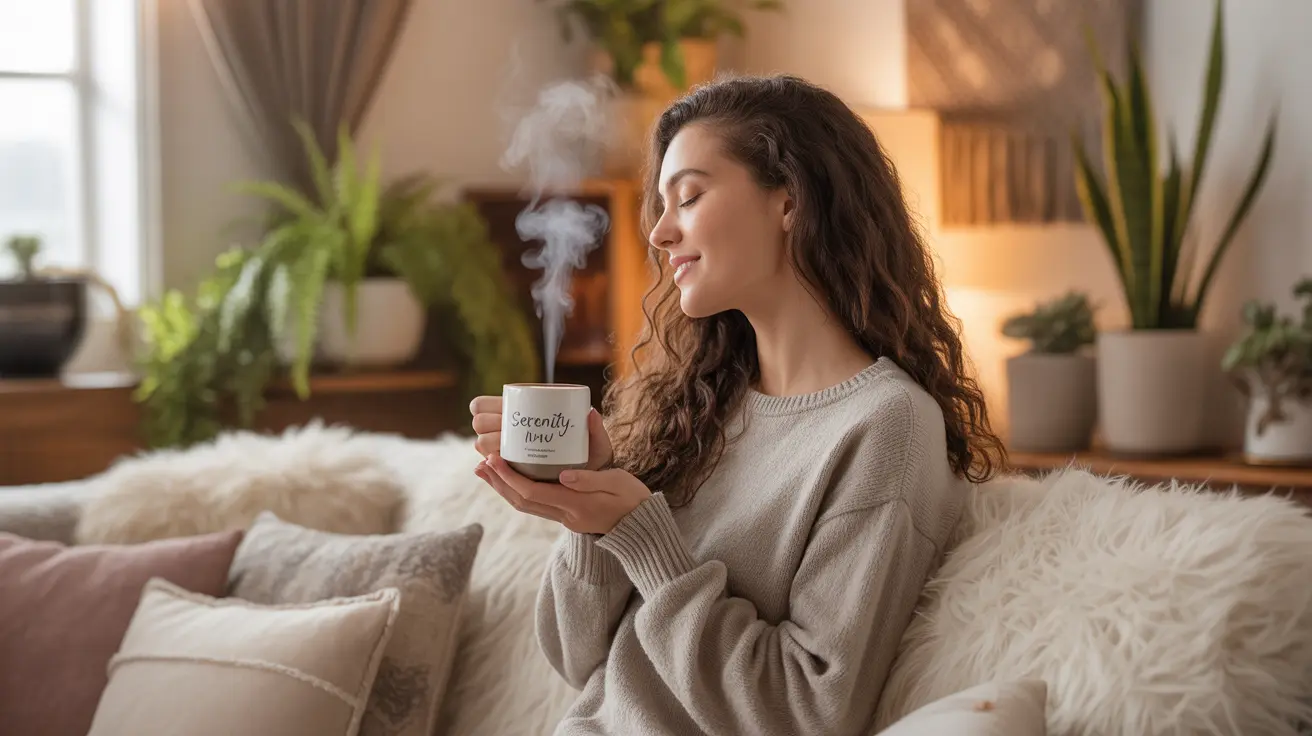In our fast-paced world, more people are turning to natural remedies to find peace and tranquility. Calming essential oils have emerged as a popular choice for those seeking gentle, natural ways to manage stress and anxiety. These concentrated plant extracts offer various therapeutic benefits through their aromatic compounds, potentially helping to create a more balanced emotional state.
Understanding how to use these powerful natural tools effectively and safely can make a significant difference in your relaxation routine. Let's explore the most beneficial calming essential oils and learn how to incorporate them into your wellness practice.
Most Effective Calming Essential Oils
Several essential oils have shown promising results in promoting relaxation and emotional well-being. Here are some of the most research-backed options:
Lavender Essential Oil
Lavender stands out as one of the most studied and versatile calming essential oils. Its active compounds, including linalool and linalyl acetate, have been shown to interact with the nervous system in ways that may promote relaxation and better sleep quality. Research suggests that lavender can help reduce anxiety symptoms and improve sleep patterns when used appropriately.
Bergamot Essential Oil
This citrus-based oil offers a unique combination of uplifting and calming properties. Bergamot can help reduce stress levels while simultaneously promoting a more positive mood, making it particularly useful for daytime anxiety management.
Valerian Root Essential Oil
Known primarily for its sleep-promoting properties, valerian root essential oil may also help reduce anxiety symptoms. Its earthy aroma and natural sedative properties make it particularly suitable for evening use.
Safe Usage Guidelines
To maximize the benefits of calming essential oils while ensuring safety, follow these important guidelines:
- Always dilute essential oils with a carrier oil before skin application
- Start with a low concentration (1-2% dilution) for topical use
- Perform a patch test before widespread application
- Use high-quality, pure essential oils from reputable sources
- Store oils properly in dark glass bottles away from direct sunlight
Methods of Application
Aromatherapy Diffusion
Using an essential oil diffuser is one of the safest and most effective ways to experience the calming benefits of these oils. Add 3-5 drops to your diffuser and run it in well-ventilated areas for 30-60 minutes at a time.
Topical Application
When properly diluted with carrier oils like jojoba or sweet almond oil, calming essential oils can be applied to pulse points or used in relaxing massage blends. This method allows for both aromatic and dermal absorption of the beneficial compounds.
Steam Inhalation
Add 2-3 drops of your chosen essential oil to a bowl of hot water, cover your head with a towel, and breathe deeply for 5-10 minutes. This method is particularly effective for immediate anxiety relief.
Frequently Asked Questions
What are the most effective essential oils for reducing anxiety and how do they work?
Lavender, bergamot, and valerian root are among the most effective essential oils for anxiety. They work through aromatic compounds that interact with the brain's emotional centers and nervous system, potentially influencing neurotransmitters involved in mood regulation.
How can I safely use calming essential oils like lavender or valerian for anxiety relief?
Safe usage includes proper dilution (1-2% in carrier oil for topical use), aromatherapy diffusion, or steam inhalation. Always perform a patch test first and use only high-quality, pure essential oils.
What are the benefits of using lavender essential oil for sleep and anxiety?
Lavender essential oil may help reduce anxiety symptoms, improve sleep quality, and promote relaxation. Its compounds can help calm the nervous system and create an environment conducive to restful sleep.
Can essential oils like jasmine or rose oil help with mood and anxiety, and how do their effects differ?
Yes, jasmine and rose oils can help with mood and anxiety, though they work differently. Jasmine tends to be more uplifting and energizing, while rose oil is often more calming and emotionally balancing.
Are there any risks or side effects associated with inhaling or applying calming essential oils?
While generally safe when used properly, potential risks include skin irritation, allergic reactions, and sensitivity to strong aromas. Pregnant women, children, and those with medical conditions should consult healthcare providers before use. Never ingest essential oils or use them undiluted on the skin.




